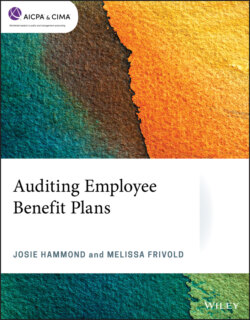Читать книгу Auditing Employee Benefit Plans - Josie Hammond - Страница 69
Accounting for uncertainty in income taxes
ОглавлениеQualified benefit plans are generally exempt from income taxes. Correction programs are available to retirement plans for most issues to retain the plan’s tax-exempt status. There are no relief programs for welfare plans. Plans may become subject to taxation under certain situations (for example, where there is unrelated business income tax due to its investment income).
FASB ASC 740-10, Income Taxes, requires management to assess the implications of any uncertain tax positions. A Plan’s tax exempt status is considered a tax position. Even though a retirement plan is typically exempt from income taxes, the existence of an operational defect could put its tax-exempt status at risk. However, because of the existence of the Employee Plans Compliance Resolution System (Revenue Procedure 2016-51), most operational defects are eligible for correction without risking disqualification. Revenue Procedure 2016-51 supersedes Revenue Procedure 2013-12 and incorporates certain modifications set forth in Revenue Procedures 2015-27, 2015-28, and 2016-8, and provides updated guidance for correcting operational defects.
FASB ASC 740-10 provides guidance on how to address uncertainty in accounting for income tax positions reflected as income tax assets or liabilities. The recognition and measurement of each position must be evaluated in accordance with the provisions. Management will need to determine whether it is more likely than not (likelihood of more than 50 percent) that a tax position will be sustained upon examination. FASB ASC 740-10 requires expanded disclosures related to uncertainty in income taxes for the end of each annual reporting period presented.
Assessment of uncertainty of income tax positions would be required for all open tax years, upon application of the provisions.
Help desk. A sample disclosure may be as follows:
Accounting principles generally accepted in the United States of America require plan management to evaluate tax positions taken by the Plan and recognize a tax liability if the plan has taken an uncertain position that more likely than not would not be sustained upon examination by the [identify the taxing authority]. The plan is subject to routine audits by taxing jurisdictions; however, there are currently no audits for any tax periods in progress.
(Note: Typically, plan tax years will remain open for three years; however, this may differ, depending upon the tax situations of each individual plan. Plan sponsors may wish to consult with their tax specialist to determine the applicable open tax years for their plan.)
